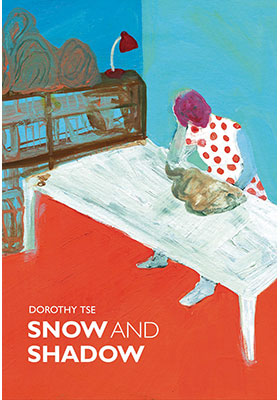Snow and Shadow
(雪與影)
ISBN : 978-988-16046-0-6
March 2014
212 pages, 5.75″ x 8.25″
- HK$140.00
Ebooks
“By turns playful and melancholy, Dorothy Tse’s tales never fail to mesmerize: they are wonderfully assured, and genuinely strange.” —Sarah Shun-lien Bynum, author of Madeleine Is Sleeping
“These stories are not for the faint-hearted. Dorothy Tse’s fictional world is haunted by shadows of death and violence. Yet it is hauntingly beautiful. The characters live out their fate as if caught in a surrealistic fable. Then we realize that this world can be none other than Hong Kong. Nicky Harman’s fluent, colloquial translation is itself a masterful feat and captures the tone and color of the original taut prose to the teeth. An indelible reading experience.” —Professor Leo Ou-fan Lee, author of Shanghai Modern: The Flowering of a New Urban Culture in China
“Like the incongruous nouns cohabiting in her collection’s title, the human inmates of Dorothy Tse’s Snow and Shadow achieve an impossible intimacy made up of dismembering and transfiguring events. Here, the body is not so much a container for the soul as an area of vulnerability—a vulnerability which is amplified and transformed by contact with others into the material of wondrous events, both submolecular and world-sized. I’m stunned by the resolve, accomplishment, and strangeness of this vision. Tse joins the ranks of artists currently remaking the world, from Yoko Tawada to César Aira. Nicky Harman’s translations render Tse’s vision in an English at once self-contained and ripe with toxins, like radioactive fruit.” —Joyelle McSweeney, author of Nylund, The Sacrographer




